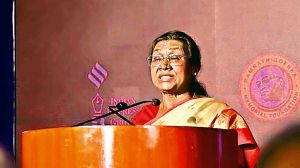Govt removes a bottleneck, colas may taste thunder
In A knee-jerk reaction to the uproar over the high pesticide content in colas, the Government had come out with a draft notification settin...

In A knee-jerk reaction to the uproar over the high pesticide content in colas, the Government had come out with a draft notification setting European Union standards for drinking water for all beverages, including carbonated drinks, fruit juices and tea and coffee.
Now, as an after-thought, the Ministry of Health wants to have EU standards for only carbonated drinks, and exclude all other products including fruit and vegetable juices.
Consumer groups are supporting this change as it makes the standards more practical and enforceable. However, it is bad news for the cola companies, which perhaps took comfort in the general view that the far-fetched standards would never see implementation.
The composition of the different products, the Government says now, is different, with different ingredients and food additives being used in them.
Hence similar and stringent EU standards for pesticide residues cannot be set uniformly for all of them. In a letter written to the Bureau of Indian Standards, the Ministry of Health has recommended that specifications for each category product should be separate and not clubbed.
So, as per the new recommendation, products containing fruit juices up to 20 per cent or beverages with tea/coffee base may not conform to the requirements prescribed for packaged drinking water because pesticide residues in them might come from other raw materials.
‘‘Our views are that the requirements prescribed for packaged drinking water should be applicable to those products where water is the principle ingredient,’’ says the recommendation. Hence the spotlight on carbonated drinks—91 per cent of which is water.
The cola companies—which were pitted against consumer groups, the Centre for Science and Environment, Sugar Development Institute and the PFA as late as this Tuesday at a meeting—are not pleased.
They have been arguing there is no way they could implement the new norms when products containing fruits/vegetable juices or beverages like tea/coffee have a higher level of pesticide content.
A final decision on the matter will be taken by the Joint Parliamentary Committee headed by Sharad Pawar, who has been sent a copy of the revised recommendations by the Ministry of Health.




- 01
- 02
- 03
- 04
- 05



























